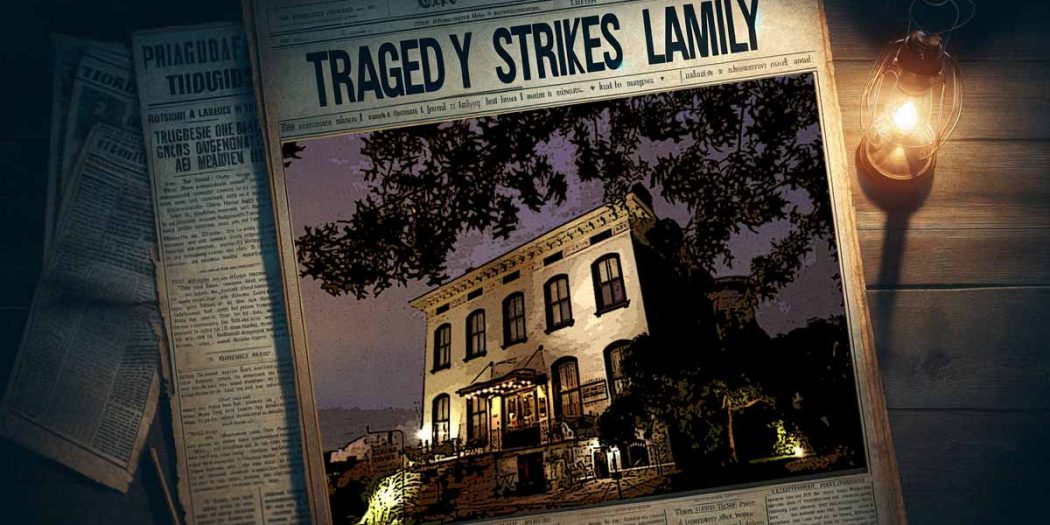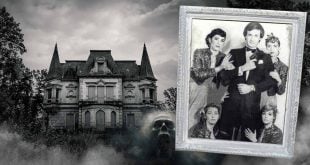The Lemp Family Curse: A Tale of Fortune, Despair, and Ghosts
For decades, everything in the mansion remained unchanged: the antique furniture, dusty silverware, old oil paintings, faded curtains… everything, including the oppressive silence, broken only by the monotonous ticking of the old wooden clock’s pendulum. It relentlessly chased the seconds in a ceaseless pursuit, meaningless to the long-departed residents. They left behind nothing but silence, darkness, and an air perfumed with the scent of death.
Recently, however, things have changed. The new owner, hoping to capitalize on the mansion’s ominous history, transformed the ground floor into a breakfast and lunch restaurant. But his hopes were swiftly dashed. Customers were few, and those who came rarely returned. The gloomy atmosphere, compounded by bizarre and frightening occurrences, drove patrons away. Doors and windows opened and closed of their own accord. Cups and plates flew and hovered in the air! Invisible fingers played the piano, while the terrifying cries of a child echoed from nowhere. A beautiful woman, dressed in an old-fashioned purple dress and carrying purple bags, would hurry down the stairs, crying and walking toward the door as if to leave, but then she would vanish just before reaching it. Most chilling of all was the sound of a loud gunshot from the room above the lobby stairs, followed by the footsteps of unseen people rushing up, then pounding on the door, before everything plunged back into silence.
“What is happening here? Do strange things really occur?” the journalist asked, his curiosity piqued as he ate his meal in the otherwise empty restaurant.
The owner, looking at him with a mix of sadness and frustration, replied, “They’re the ghosts of a hateful past, a lingering curse that refuses to leave these walls, and it seems to be haunting me now. I’m nearly bankrupt because of it.”
“An old curse! You must be joking,” the journalist said.
“You’re right to be skeptical. You don’t know what happened here,” the owner responded.
“And what did happen here?”
“It’s a long and heartbreaking story.”
“Well, your restaurant is empty, and I’m not in a hurry… So go ahead and tell me. Listening to stories is my job.”
The German Beer Legacy
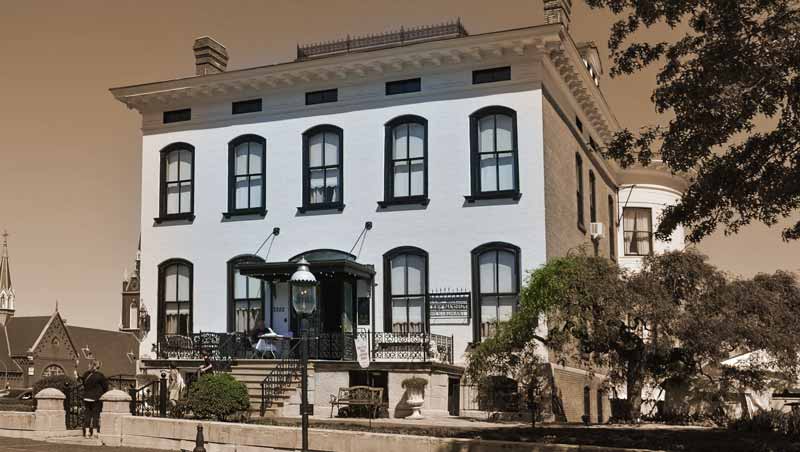
The owner pulled out a chair from under the table and began to recount the story: “It all started in 1838 when Adam Lemp immigrated from Germany to the land of the American dream. He settled here in St. Louis, Missouri, where he opened a small grocery store selling food, candy, and his homemade beer, which quickly gained popularity. It was a light German beer, distinct in taste from English beer, and notably sold cold even in the sweltering summer heat—a significant advantage at the time. The key to the coolness of Lemp’s beer was a cold cave beneath the city, where Adam Lemp stored his beer barrels. The drink’s popularity led him to abandon the grocery business and focus solely on brewing beer.”
Journalist: “What a stroke of luck and success!”
Owner: “Adam Lemp passed away in 1862, leaving his only son, William Lemp Sr., a considerable fortune and a booming business. William proved his mettle by continuing his father’s legacy. Under his leadership, Lemp’s beer gained national recognition, becoming a sought-after brand across the country. To meet the growing demand, William opened a large brewery in St. Louis. In 1862, he built a luxurious mansion near the storage cave, connecting them with an underground tunnel to bypass the city’s congested roads.”
Journalist: “By luxurious mansion, you mean this very building we’re in now?”
Owner: “Yes. At that time, this mansion was among the most opulent and beautiful in St. Louis.”
Journalist: “Does the tunnel still exist?”
Owner: “No, it was sealed off by the sanitation company long ago.”
Journalist: “Okay, let’s return to our story. What happened next?”
Owner: “William Lemp Sr. had four sons and one daughter. The eldest was also named William, known as William Jr. But Mr. Lemp’s favorite child was his second son, Frederick, who was groomed to inherit the house and brewery. Tragically, fate struck swiftly when Frederick died in 1901 from a heart attack at the young age of 28. This event profoundly changed William Sr.’s life. He sank into depression and became reclusive, spending his days and nights alone, drowning in sorrow. His despair culminated on the morning of February 13, 1904, at 9:45 AM. While the family was having breakfast in this large hall, a gunshot suddenly echoed from their father’s room directly above us.”
Journalist: “Do you mean the room with the lock?”
Owner: “Yes… After hearing the gunshot, the family rushed to their father’s room. The door was locked from the inside. Despite their frantic knocking, there was no response, so they broke in. Inside, they found their father lying on the bed, blood pouring from his head, a .38 caliber gun in his hand. He had taken his own life.”
Journalist: “But why the lock on the room’s door?”
Owner: “Since opening this place, on several occasions, I, the waiters, and customers have heard gunshots from that room, followed by the sound of unseen footsteps climbing the stairs and knocking on the door, which then opens and closes by itself. This caused widespread panic, so I installed a substantial lock on the door.”
Journalist: “This is incredible, sir!”
Owner: “Don’t be too surprised. The sound of gunshots is not limited to that room but comes from many areas of this mansion. You’ll understand why soon, when I finish my story.”
The owner continued, “After the suicide of William Lemp Sr., the wealth and brewery were inherited by his eldest son, William Lemp Jr. He and his wife moved into the mansion, where he converted part of the ground floor into an office for managing his business. In that same year, William Jr. launched a new beer brand called Falstaff, which rapidly dominated the American market, selling millions. It’s rumored that William was so wealthy, he gave his wife a thousand dollars daily – the equivalent of about $25,000 today – with the stipulation that she must spend it all before returning home!”
Journalist: “Such extravagance! Was he deranged?”
Owner: “No, he was very sober and intelligent, but wealth gradually corrupted his soul and mind.”
Journalist: “And his wife? I’ve heard many stories about her.”
Owner: “Ah, the Lavender Lady?”
Journalist: “Yes. But why was she called that?”
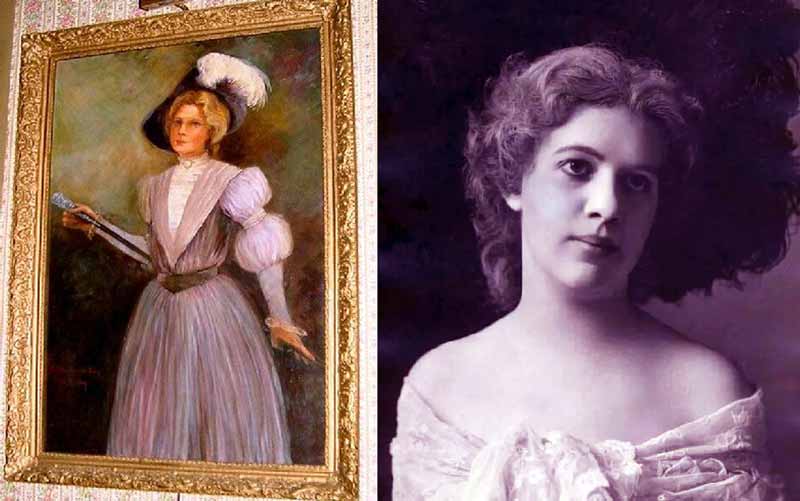
Owner: “She had an unusual fondness for the color purple. Her clothes, jewelry, bedroom furniture, even her carriage, all were purple. Her real name was Lillian Handlan. William Lemp Jr. married her in 1899. They had one son, also named William, referred to as William III to distinguish him from his father and grandfather. William Jr. deeply loved his wife initially, but he changed significantly after acquiring wealth. He became a womanizer and increasingly paranoid, squandering money recklessly. He even built a large theater in the storage cave, complete with rivers and fountains of beer. His cruelty towards his wife escalated; he beat and mistreated her over trivial matters. Consequently, she filed for divorce and appeared in court in a black dress, the only time she ever deviated from wearing purple. She won the divorce in 1908, along with custody of their son. She endured much suffering in this house.”
The journalist, shaking his head sadly: “I feel for that beautiful lady. Imagine her walking in her purple dress through this large hall.”
The owner whispered, “Don’t imagine too much, sir. Her sorrowful spirit still appears in this hall from time to time.”
Journalist: “And what became of her only son?”
Owner: “William III passed away at a young age.”
Journalist: “Was William Jr. the only son of his father?”
Owner: “Officially, yes… but in reality, there was another son, unknown to the public. An illegitimate child William Jr. had with one of his mistresses. The child suffered from mental illness, and to avoid scandal, his father confined him to the attic. His screams were horrifying, terrifying Lillian and the servants. No one dared to check on him, except for an old maid tasked with his care. It’s said that the child died years later and was secretly buried in the mansion’s garden, never documented officially, as if he never existed.”
Journalist: “How did people come to know of his existence if he was never seen?”
Owner: “Lillian and the servants eventually spoke of the screams and cries from the attic. They referred to him as the ‘monkey child.’ The old maid who cared for him confessed his existence on her deathbed. And above all, sir, his spirit still lingers here.”
Journalist: “His ghost!”
Owner: “Yes, sir. His cries and screams occasionally still resound in this place. One of my waiters saw him, a dirty boy around six or seven years old, sitting in a corner crying. The sight was so terrifying that the waiter screamed and fled. When we got there, the child had vanished. That waiter left his job immediately and never returned, even for his wages.”
Journalist, smiling: “I might also run away without paying.”
Owner: “We’re used to it. Many customers leave before they finish their meals. Didn’t I say this house might drive me to bankruptcy?”
Alcohol Prohibition: The Beginning of the End
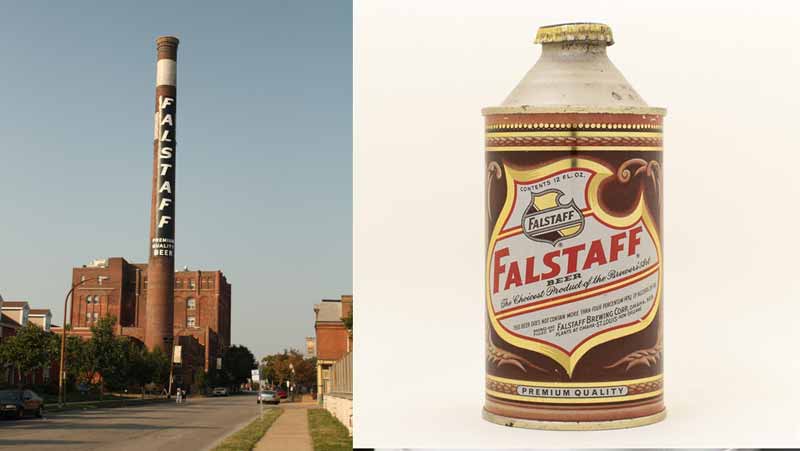
Journalist: “What happened to William Jr. after all these tragedies?”
Owner: “The beer market became increasingly competitive with the outbreak of WWI, and Mr. William Jr., preoccupied with his extravagant parties, neglected to modernize his factory. As a result, sales of Falstaff beer plummeted. Then, the devastating blow of Prohibition in 1920 struck. Within a few months, the factory shut down, and all the workers were laid off. The final nail in the coffin was when William Jr. sold the factory and the Falstaff brand for a pittance.”
Journalist: “A truly tragic ending.”
Owner: “No, it wasn’t the end, merely the start of their downfall. That same year, William’s sister, Mrs. Elsa Lemp, suffered a terrible tragedy. She was an unhappy woman, constantly at odds with her husband.”
Journalist: “Please don’t tell me she also committed suicide!”
Owner: “But, unfortunately, that’s exactly what happened. Like her father, Mrs. Elsa woke up one morning in a foul mood and shot herself in the head with a .38 caliber pistol.”
Journalist: “Incredibly strange… as if a curse haunts the Lemp family with premature death and suicide.”
Owner: “Indeed, sir. The strangeness doesn’t end there. After his wife’s divorce, the factory’s closure, his sister’s suicide, and his mother’s death from cancer, Mr. William Jr. became withdrawn and absent-minded. He stopped leaving his home and spent his time alone in his office. On the morning of December 29, 1922, he ended his life with a .38 caliber pistol while sitting in his office.”
Journalist: “This is beyond belief! Three family members dying by suicide in the same manner.”
Owner: “Not three, but four.”
Journalist: “What!! Another suicide in this mansion?”
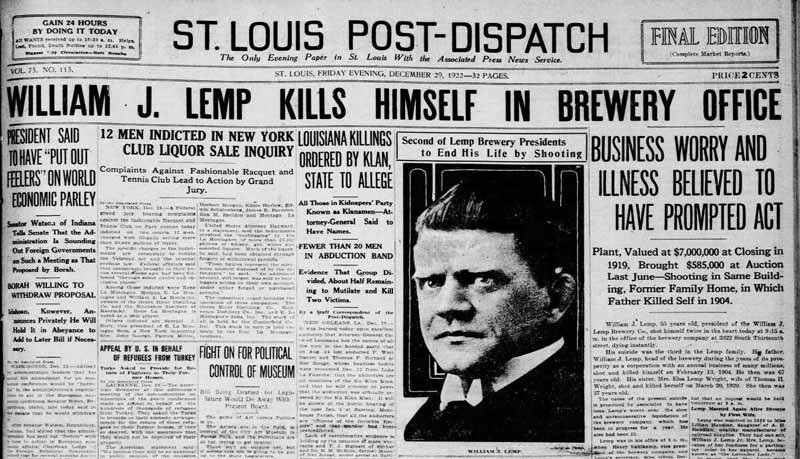
After William Jr.’s suicide, the mansion stood empty for a while. Then, his younger brother Charles Lemp moved in. A bachelor, Charles lived there with his dog and two elderly servants who were married to each other. Known for his introverted and eccentric nature, even Charles’ will, written in 1941, was unconventional. He stipulated that his body should be taken directly to the crematorium upon his death, without being washed or changed, and that no funeral or memorial service be held, nor any obituary published. He requested immediate cremation and for his ashes to be buried on his farm. In 1949, Charles followed the tragic family legacy and committed suicide. He first shot his dog in the basement, then went to his room and ended his life with a .38 caliber pistol, leaving behind a note: “In case I am found dead, blame it on no one but me.”
Journalist: “This is the most bizarre story I’ve ever heard. How can an entire family end in such a manner?”
Owner: “To be precise, there was another brother, Edwin Lemp. He did not take his own life and lived until ninety. He sold this house after Charles’ suicide in 1949, then led a solitary life on his farm. Like his brothers, he was eccentric, instructing that all the family’s paintings and possessions be destroyed after his death.”
Journalist: “I’m at a loss for words. It’s a strange, sad, and poignant tale.”
Owner: “Indeed, sir. But don’t let it trouble you. May I offer you more to drink as you finish your meal?”
Journalist, looking apprehensive: “No, thank you. I’d rather not be left alone in this ghostly place. I’ve had enough. How much do I owe?”
After quickly gathering his papers and donning his coat, the journalist hurriedly left, leaving the haunted Lemp Mansion to its darkness, sorrows, and bitter memories. Shortly afterward, the mansion’s owner sold it to a couple who turned it into a hotel. Today, its doors are open to those seeking thrills and adrenaline. What about spending a night there, dear reader? It would surely be an unforgettable experience.
 kabbos
kabbos
